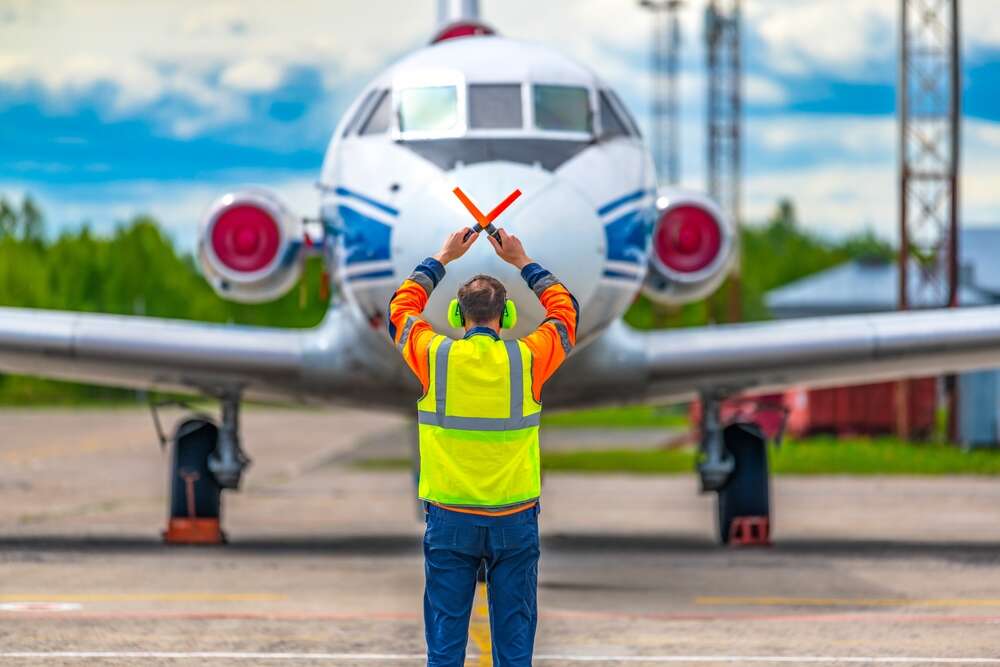

- Although airline emissions only account for 2.5% of global emissions, the industry attracts criticism because spending is seen as discretionary.
- Sustainable aviation fuels still make up less than 2% of the aviation industry’s fuel consumption.
- The EU’s Fit for 55 decarbonisation plan and the ReFuelEU Aviation Regulation are likely to disproportionately hit European carriers.
The era of cheap flights appears to be over. In late April, carbon rating agency BeZero Carbon estimated that if the cost of decarbonisation – namely sustainable aviation fuels and engineered carbon removal credits – doesn’t come down, tickets could be 230% higher in 2050.
The deliberately shocking headline from the report is that a return flight from London to New York could cost almost £1,800 ($2,255) by 2050 – over £1,240 more than average prices this year – without urgent action to help the aviation industry decarbonise.
BeZero Carbon points out that sustainable aviation fuels such as cooking oil, waste oils from animals or plants, forestry waste and other biomass products currently account for less than 2% of the aviation industry’s fuel consumption. It’s still home to kerosene, which makes up 98% of consumption.
“Armed with more sustainable fuel options and effective and high-quality engineered carbon removal credits, the aviation industry could protect end-consumers from skyrocketing costs, and the planet from harmful emissions,” says Ted Christie-Miller, director of carbon removal at the London-based agency.
Extravagant claims of sustainable aviation
The industry has not been helping itself with wildly extravagant claims about its sustainability credentials. At the beginning of March, the UK’s Advertising Standards Authority (ASA) banned an advert from Lufthansa that claimed the German carrier was protecting the planet.
“Absolute environmental claims must be supported by a high level of substantiation,” the ASA said in its ruling. “There [are] currently no environmental initiatives or commercially viable technologies in the aviation industry that would substantiate the absolute green claim, ‘Protecting its future’, as we considered consumers would interpret it,” it concluded.
It was the same case for Etihad Airways in mid-April. The national airline of the United Arab Emirates had run two adverts that claimed flying with it was “the conscious choice for the planet”.
In its ruling, the ASA damningly concluded, “Initiatives such as reducing single-use plastics and using more efficient aircraft [are] not adequate substantiation to evidence a ‘sustainable aviation’ claim.”
Although the airline has indeed been investing heavily in the decarbonisation of aviation and new green technology, the benefits will not be seen for several years. And that is the problem; any attempts to decarbonise the industry will take time and money.
At the end of March, for example, US carrier United Airlines invested $5m in carbon capture and the removal technology provider Svante. The Canadian company uses structured absorbent beds, known as filters. These can capture 95% of carbon dioxide emissions from industrial sites, as well as carbon dioxide that’s already in the air. All good news, but this isn’t happening tomorrow.
“There’s no question that this carbon utilisation is in its infancy today,” admits United’s chief executive, Scott Kirby.
Yet the airline sector as a whole has been slow to embrace sustainability-linked funding since the Netherlands’ Royal Schiphol Group entered the space in 2018, precisely because it is difficult at the moment to see a meaningful way to green the sector. This year has seen very little issuance. The only bond so far has been Air France-KLM’s €1bn ($1.1bn) sustainability-linked bond, which has faced criticism for its weak targets. And there have been two loans – a sustainability-linked loan for Turkish low-cost carrier Pegasus Airlines, for which terms have not been disclosed, and a ¥26.5bn ($195m) transition-linked loan for Japan Airlines.
How much will aviation decarbonisation contribute?
All of this makes the airline industry to be the industrial monster under the bed.
“Airline emissions tend to attract criticism because they are often viewed as discretionary and exclusive,” writes S&P Global Ratings in a report published in April. After all, 80% of all flights are taken by 20% of the global population, according to the International Council on Clean Transportation (ICCT).
But looked at as a whole, airline emissions account for only 2.5% of global emissions, according to the European Environmental Agency, which puts them well below emissions from power generation, the building industry and even passenger cars.
Not that this elevates any of the pressure that the industry will continue to see – especially in Europe. S&P Global Ratings states: “European airlines will feel the pinch of carbon price regulations more acutely than their international rivals over the next few years.”
The report makes clear that regulatory costs linked to carbon emissions are already here and are particularly impacting European airlines, “Europe’s regulations are both stricter and more expensive than elsewhere." The European Fit for 55 decarbonisation roadmap aims to reduce carbon emissions by at least 55% by 2030.
At the end of April, the EU confirmed that free emission allowances for the aviation sector will be gradually phased out and full auctioning for carbon allowances will be implemented from 2026. At the same time, the EU’s ReFuelEU Aviation Regulation recommends sustainable aviation fuel account for 2% of aviation fuel in 2025 and 5% in 2030, rising to 20% by 2035.
“S&P Global Ratings expects this approach will weigh on European airline’s operating costs, and could put pressure on some carrier’s credit quality, particularly if they are unable to pass escalating costs onto customers,” is the report’s conclusion.
There has been no noticeable impact of this on the share prices of European airlines yet – Lufthansa is up 36.7% over the past year; Air France-KLM is down 20% and International Consolidated Airlines, which owns British Airways is up 2.1% – but too much remains uncertain. “It is important to acknowledge the uncertainty surrounding future regulation and thus costs,” the report says.
But one thing is sure; the price rises will be felt by the consumer.
[Read more: Has the airline industry finally embraced sustainability?]





